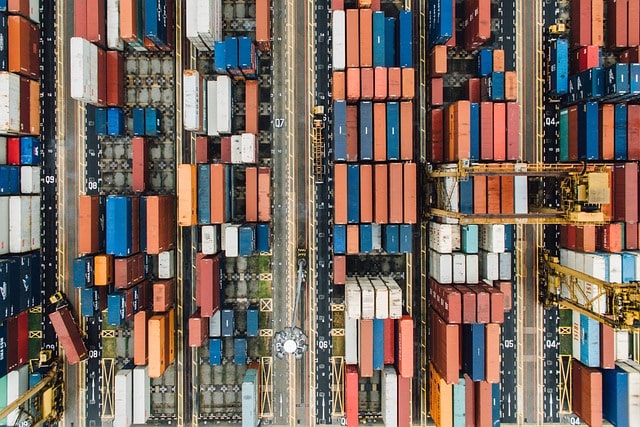

Micro, Small and Medium Enterprises (MSMEs) form the backbone of both the Indian and global economy. In India, they are a key pillar of growth; contributing around 30% to the GDP and over 45% to the country's exports.
By fostering entrepreneurship, generating employment and promoting inclusive development, MSMEs continue to drive economic transformation at the grassroots level.
Globally, MSMEs represent the most dominant segment of the business ecosystem, accounting for nearly 90% of enterprises and over 50% of total employment. In India, they hold a similar significance, emerging as the second-largest employer after agriculture.
Recognising the critical role of MSMEs worldwide, the United Nations designated June 27 as International MSME Day in 2017.
This year, the Ministry of MSME is celebrating ‘Udyami Bharat – MSME Day.’ The theme for 2025 focuses on "Enhancing the role of MSMEs as drivers of Sustainable Growth and Innovation.”
Government’s Key Initiatives and Achievements
With over 6.3 crore enterprises, the MSME sector has become a vibrant force driving entrepreneurship and employment across India. Through various schemes and collaborations, the Ministry of MSME is fostering growth in areas like credit access, skill development, technology and market expansion.
PM Vishwakarma
Launched on September 17, 2023, PM Vishwakarma is a central sector scheme with an outlay of Rs. 13,000 crore for 2023-24 to 2027-28. It aims to uplift traditional artisans and craftspeople by enhancing product quality and connecting them to wider markets.

As of June 26, 2025, over 2.71 crore applications have been submitted under the PM Vishwakarma scheme, with 29.94 lakh successfully registered.
Udyam Registration Portal

Prime Minister’s Employment Generation Programme (PMEGP)
PMEGP is a credit-linked subsidy scheme that supports self-employment by helping set up micro-enterprises in the non-farm sector. Since its launch in 2008-09, till FY 2024-25 (as on 24.12.2024), more than 9.87 lakh micro-enterprises have been assisted with disbursement of Rs. 26,124.26 crore in Margin Money subsidy, generating employment for over 80 lakh people.
In FY 2024-25 (as on 24.12.2024), 58,028 new units were supported with Rs. 2,018.97 crore subsidy, creating jobs for over 4.6 lakh individuals. Applications are now accepted in 11 regional languages for wider outreach.
Scheme of Fund for Regeneration of Traditional Industries (SFURTI)
SFURTI was launched in 2005-06 to organise traditional artisans into clusters for improved competitiveness, product development and sustainable income generation.
As of now, 513 clusters have been approved, with 376 functional. In 2023-24, 18 clusters became functional, benefiting 11,810 artisans across 11 States. In FY 2022-23, 15 clusters were approved with Rs. 40.01 croreassistance, directly benefiting 8,875 artisans.
Public Procurement Policy for Micro and Small Enterprises
The Public Procurement Policy for MSEs was notified in 2012 to ensure market access for Micro and Small Enterprises. It mandates 25% annual procurement from MSEs by Central Ministries/Departments/Central Public Sector Enterprises (CPSEs), including 4% from MSEs owned by SC/ST and 3% from MSEs owned by Women entrepreneurs. A total of 358 items are reserved for exclusive procurement from MSEs.
In FY 2024-25 (as on 5th Dec 2024), CPSEs (Central Public Sector Enterprise) and Departments procured goods worth Rs. 37,190.02 crore (38.39%) from 1,15,481 MSEs, surpassing the mandated target.
Khadi and Village Industries

The Government is promoting the Khadi and Village Industries (KVI) sector through the Khadi and Gramodyog Vikas Yojana (KGVY), a Central Sector Scheme with no state component. It comprises two key components: Khadi Vikas Yojana (KVY) for the Khadi sector and Gramodyog Vikas Yojana (GVY) for Village Industries.
KVI sales have seen over a 4-fold increase in the last 10 years, rising from Rs. 33,135.90 crore (2014-15) to Rs. 1,55,673.13 crore (2023-24). In the FY 2023-24 (till 30.11.2024), sales have reached Rs. 1,10,747.40 crore (P). KVI production has tripled, from Rs. 27,569.37 crore (2014-15) to Rs. 1,08,297.91 crore (2023-24), with Rs. 76,017.79 crore (P) recorded till 30.11.2024.
International Cooperation
International Cooperation Scheme supports MSMEs in entering global markets by facilitating participation in international fairs, exhibitions and knowledge-sharing events on a reimbursement basis. It aims to make MSMEs globally competitive through continuous exposure to new technologies, markets and best practices.
Key International Initiatives and MoUs (2024):
2024 Key Initiatives and Campaigns under Ministry of MSME
Apart from international collaborations, the Ministry of MSME undertook several impactful initiatives and campaigns in 2024. These focused on digital empowerment, gender inclusion, innovation, rural enterprise, and administrative efficiency.
Conclusion
MSMEs are revolutionising India’s growth story by driving innovation, generating employment, and empowering local communities. They are turning small ideas into big impacts, especially in rural and semi-urban areas. With strong policy support, digital tools, and access to new markets, these enterprises are becoming engines of sustainable and inclusive development. MSME Day is not just a celebration; it’s a reflection of how small businesses are shaping a self-reliant and future-ready India.
